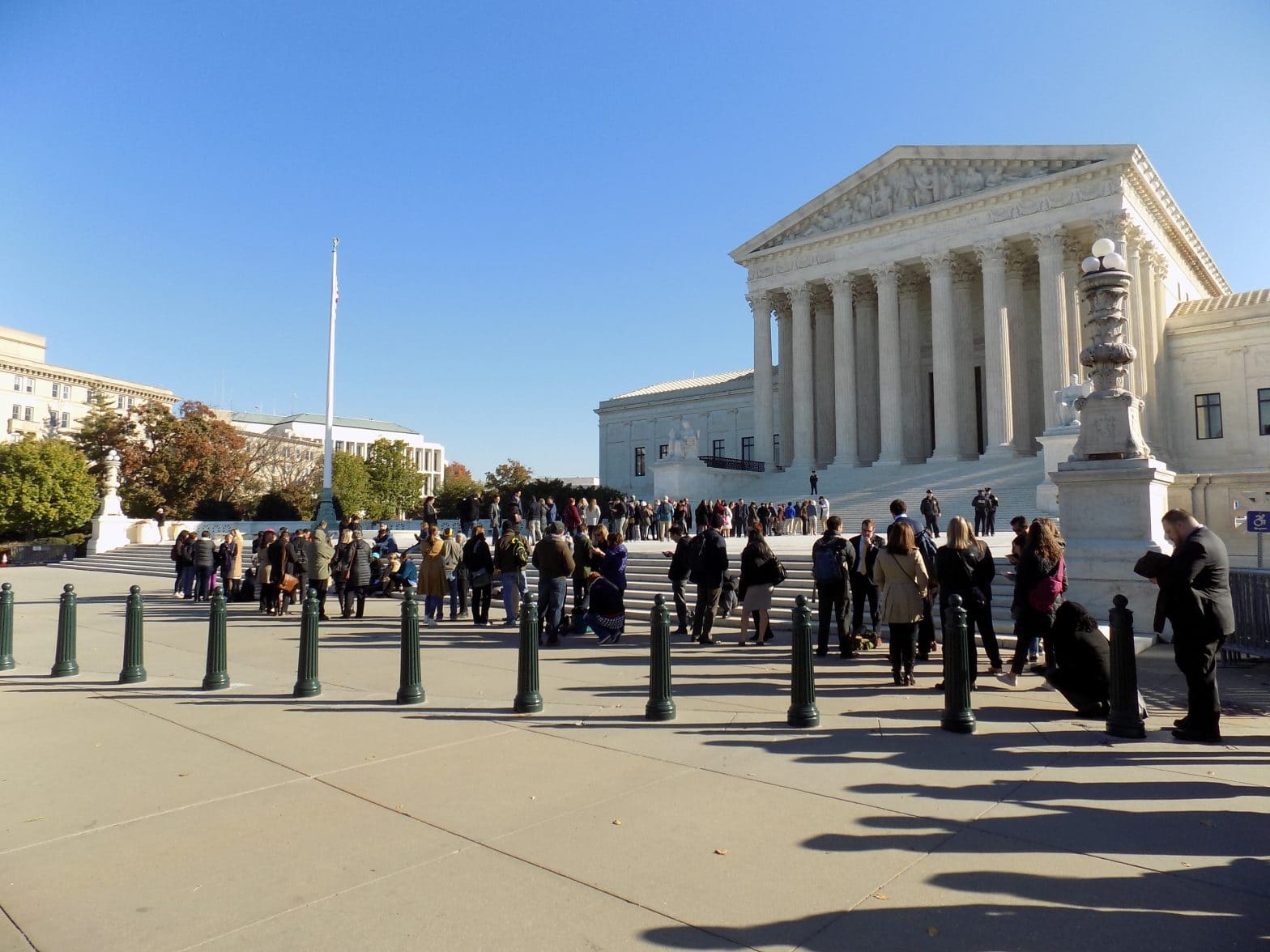Justices Struggle to Solve ‘Puzzle’ of Ambiguous Immigration Law

WASHINGTON – The justices of the U.S. Supreme Court struggled on Monday to sort out ambiguities in the Immigration and Nationality Act related to when a noncitizen can apply for cancellation of a removal order.
The case before the court involves Andre Martello Barton, a citizen of Jamaica, who came to the United States on a B-tourist visa in May 1989 and became a lawful permanent resident in June 1992.
Four years later, he pleaded guilty to charges of aggravated assault, criminal damage to property, and possession of a firearm. He was subsequently convicted of separate controlled-substance offenses.
In 2016, the Department of Homeland Security began removal proceedings against Barton based on his deportability under the Immigration and Nationality Act.
The Act establishes conditions under which a noncitizen is subject to removal from the United States; however, in doing so it establishes two sets of rules: One for noncitizens who have been lawfully admitted into the United States, another for those who have not been admitted.
The Supreme Court’s decision in this case will significantly affect lawful permanent residents’ access to relief from removal.
The problem presented by the case lies in statutory language defining the “grounds of inadmissibility” of a noncitizen and the “grounds of deportability.”
The statutory grounds for deportability and inadmissibility are not the same. For example, a noncitizen who has not been lawfully admitted to the country can be declared inadmissible if they have been convicted of a crime involving “moral turpitude.”
Moral turpitude is a legal concept that refers to “an act or behavior that gravely violates the sentiment or accepted standard of the community”.
Admitted noncitizens, however, are deportable for a conviction of a single crime involving moral turpitude only if the crime was committed within five years of their coming to the United States.
Noncitizens found either inadmissible or deportable can apply for a cancellation of their removal if they meet certain statutory requirements, including having resided in the U.S. continuously for 7 years.
A provision of the Immigration and Nationality Act known as the “Stop-time’ rule specifies events or conditions that terminate a noncitizen’s period of continuous residence.
After Barton filed an application to cancel his removal, an immigration judge ruled he was ineligible for such relief because his 1996 crimes statutorily terminated his period of continuous residence in the United States just months shy of 7-year requirement under the Act.
The ruling was later upheld by the Board of Immigration Appeals and the 11th U.S. Circuit Court of Appeals.
But Barton continues to argue that because of the ambiguity of the law and the two sets of rules for deportability is establishes, his crimes should never have triggered the stop-time rule. Therefore, he says, he meets the residency requirement to at least try to have his deportation waived.
The government says he’s got it wrong. As far as it is concerned, his convictions and admissions of guilt to multiple offenses render him deportable, case closed.
But the justices from the outset appeared to struggle with the language of the law. Why, they wondered aloud, did Congress create two distinct legal paths to which a permanent legal resident facing deportation could be assigned?
“This sounds like the kind of language lawyers use to say that something that is not “this,” is in fact, this other thing,” Justice Samuel Alito said at another point.
Expressing the court’s frustration as it went around and around, Justice Elena Kagan opined. “It was a genius who drafted this.”
Justice Sonia Sotomayor agreed, saying that by creating a dichotomy of consequences for the noncitizen facing removal from the country, “Congress has not been very consistent.”
Even then, Justice Brett Kavanaugh said, it appears that Congress expressly tried to write the law so that a crime that makes someone deportable, doesn’t necessarily make him ineligible for relief.
The real question is why does anybody write a statute that looks like this, unless they want to establish two categories,” Justice Kagan said.
“I am back to what in heaven’s name does the second clause mean?” Justice Breyer said, conceding the hearing would end on as an ambiguous note as it started.
The case is Barton v. Barr.























